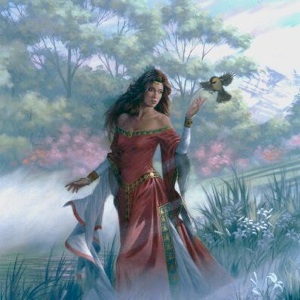
There are many versions of the song. Between 1916 and 1921, John Jacob Niles composed a new melody and slightly changed the words.
His version became well known throughout the southern Appalachian Mountains and is the source for my arrangement.
For my setting I attempt to capture the singer’s romantic longing for his “true love,” the pain of her inaccessibility and his vision of hope for their union after death.
Text:
Black is the color of my true love's hair,
Her lips are something rosy fair,
The prettiest face and the daintiest hands,
I love the grass whereon she stands.
I love my love and well she knows,
I love the grass whereon she goes;
If she on earth no more I see,
My life will quickly leave me.
Winter's passed and the leaves now again are green;
The time has passed that we have seen.
But still I hope the time will come
When you and I shall be as one.
I go to the river to mourn, to weep,
But satisfied I ne'er can sleep;
I'll write her a note in a few little lines,
I'll love you, my love, a thousand times.
So fare you well my love and this you'll know,
I loved the grass whereon you'd go;
I now write you this note in a few little lines,
I'll love you, my love, a thousand times.